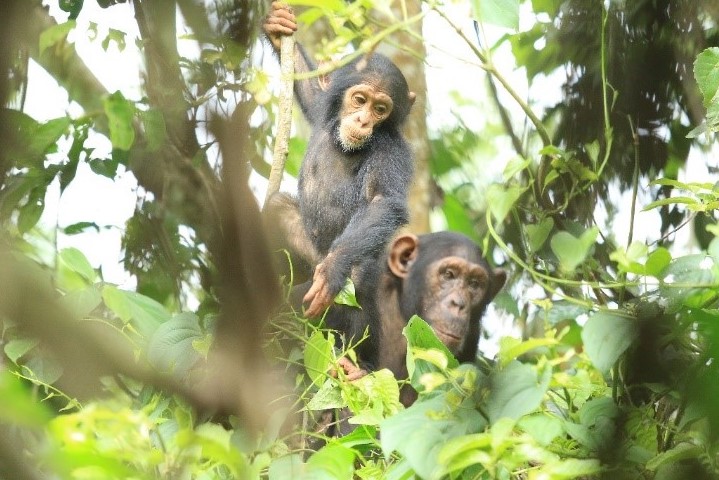
Uganda Biodiversity Fund Champions The Cause For Conservation
Uganda Biodiversity Fund (UBF) was registered in 2016 and officially launched in 2018 as a Trust established to provide sustainable financing for the conservation of Uganda’s biodiversity.
Uganda has recognized the need for a proactive approach to conservation of the environment and a healthy ecosystem. There are increasing levels of awareness with some organisations taking up the role to sensitize communities about the co-relation between conservation and sustainable development.
However, some of the biggest vices still affecting Uganda’s environment is indiscriminate felling of trees, and forest land allocated for agriculture, as well as human-wildlife conflict. To curtail this there must be goodwill from individuals, Government, and the private sector collaborating with non-profit and civil society organisations to raise funds, and awareness to change the negative practices affecting Uganda’s biodiversity conservation.
Uganda Biodiversity Fund sub-granted institutions that are in the conservation arena trying to make a difference in the country’s flora and fauna. One of these, the Mid-Western Region Centre for Democracy and Human Rights (MICOD), a civil society organization in Masindi District, is working to mitigate the risks of forest encroachment caused by human economic activity. To curb the indiscriminate felling of trees, MICOD propositioned the communities nearest the forest area to find a way to interact with nature without compromising the authenticity of the forest ecosystem. Elly Kiirya, the Program Officer said that MICOD “aims to restore as much as 400 hectares of the forest.”
To this end tree-planting and apiary projects were set up and the communities sensitized on the dangers of unsustainable harvesting of trees from the forest reserve. The introduction of woodlots at the personal and community level created an understanding of reforestation, with the locals planting trees for fuelwood instead of cutting them from the forest. There is still lack of sufficient supply even with the area Local Government’s intervention in collaboration with the CBO which provided tree seedlings for planting. In addition, MICOD distributed beehives to the community for the farmers to engage in an economic activity appropriate to the forest and symbiotic to the ecosystem there.
According to the Food and Agriculture Organization (FAO), the role of forests for rural households in Uganda is majorly to provide energy and to contribute to providing a home and furnishings, food and nutrition security and health. The forest, therefore, is a convenient and lucrative source of livelihood for most everyone in these areas with no clear alternative to it.
With the scramble for the land resource especially between refugees and the host communities, there has been heavy encroachment on the forest reserves with large areas of the forests shifted to agriculture. Another major factor which has lessened availability of land for use is the discovery of oil in the Albertine Rift, with vast areas where Uganda government will construct the planned construction of the Hoima-Tanga crude oil pipeline.
Bulindi Chimpanzee & Community Project (BCCP) was sub granted by UBF to implement the Habitat Restoration and Alternative Livelihoods project. The community had to learn to practice responsible production and consumption to end the human-wildlife conflict. Since the last census conducted in 2015 the chimpanzee numbers stood between three hundred and three hundred and sixty (McCarthy et al. BMC Ecol (2015).
Immaculate Kiiza Bagonza is one of twenty-three women, who concerned about the incidences of chimpanzee attacks and retaliatory killings of chimpanzees by humans, formed the Wagaisa Women’s Chimpanzee Conservation Group in 2017. The group got a fifteen-million-shilling soft loan to facilitate group members to conduct restoration and conservation work critical to chimpanzee habitats and engage in alternative livelihoods.
The consequences of attacks by the chimpanzees encouraged community members to engage in alternative sustainable enterprises to reduce pressure on the remaining chimpanzee habitat between Budongo and Bugoma forests and mitigate disruption to the chimpanzee gene flow.
Bagonza for instance, began poultry farming and in the past year she has grown a coop of over one hundred layer-chickens which income, the mother of five says has enabled her to support her family.
All the twenty-three group members have each accessed a loan from the group and are currently engaged in more environmentally friendly enterprises, such as leasing land outside the forest to plant alternative crops like coffee, producing sustainable timber woodlots, and making energy-saving stoves, to name a few. Despite the Covid-19 pandemic which has adversely affected the enterprises all the women are paying back their loans.
There is optimism, Bagonza said, that one day the community shall be able to successfully restore the degraded forest and “to live with the chimpanzees in peace.”
Replanting what has been uprooted from nature is not an everyday practice. African Volunteers Association (AVA) yet another sub-grantee of Uganda Biodiversity Fund, established an ethnobotanical garden for tree seedlings at an affordable price to encourage planting of trees.
AVA founder, Reverend Father Dr. Peter Kanyandago noted the ethnobotanical garden was started to prevent loss of plant species and regenerate in former growing areas, those that are extirpated, to enable plant biodiversity conservation. Traditionally, trees and plants are used for medicinal purposes, and the source of treatment for common ailments has for generations been found in the plant species and trees that are being destroyed. The locals are not able to find these sources of treatment so easily anymore and this prompted the NGO to start replanting some indigenous tree species, which has been done in the seven parishes along the Kibale National Park in Kamwenge District of Western Uganda. “Community awareness is key in changing the perception of all concerned to promote co-existence between humans and plant biodiversity,” he said.

